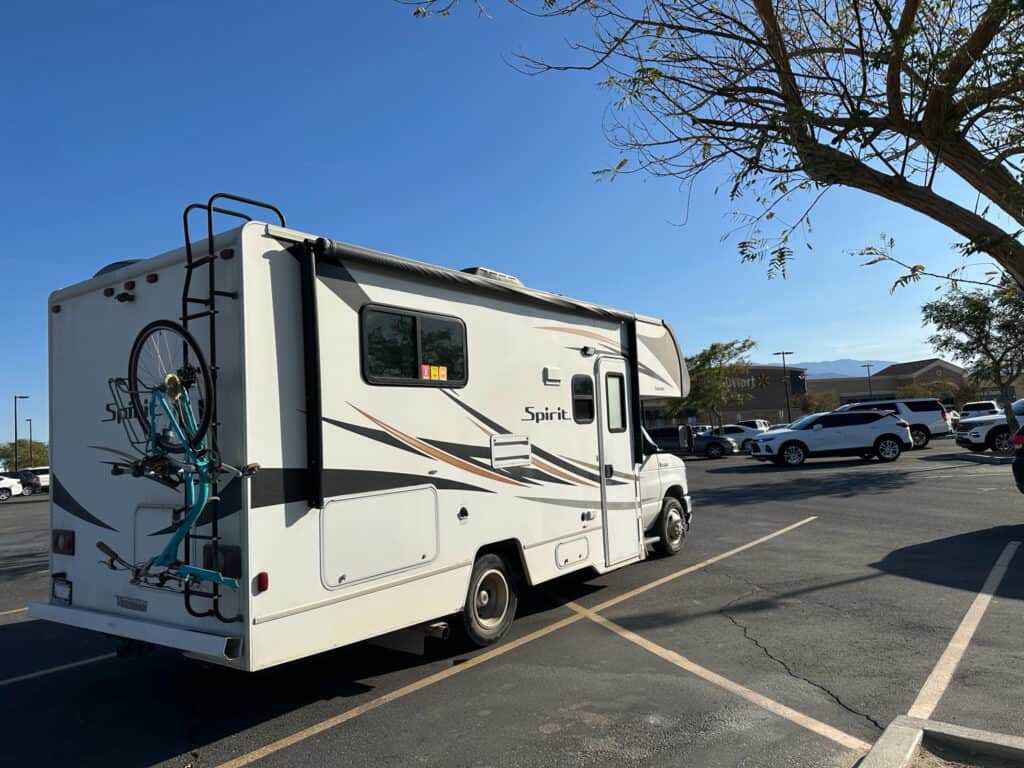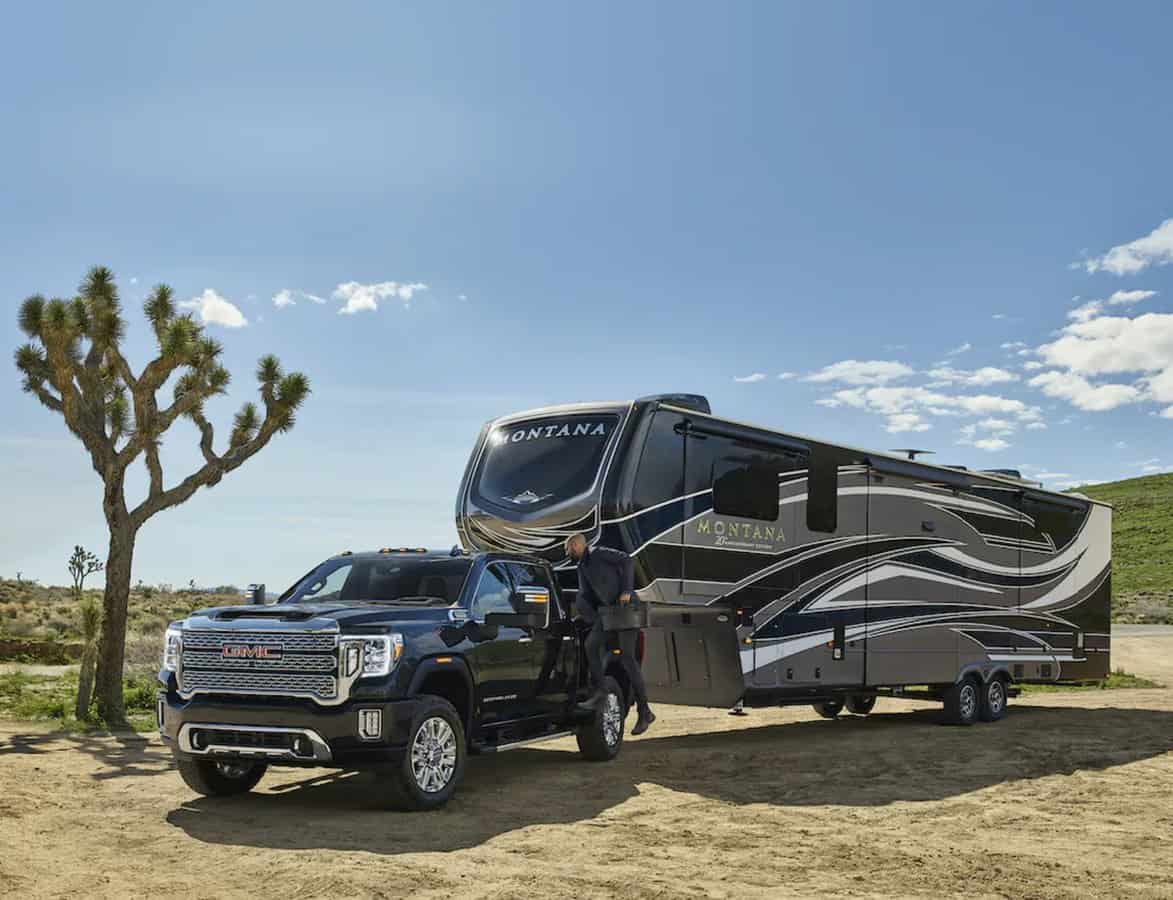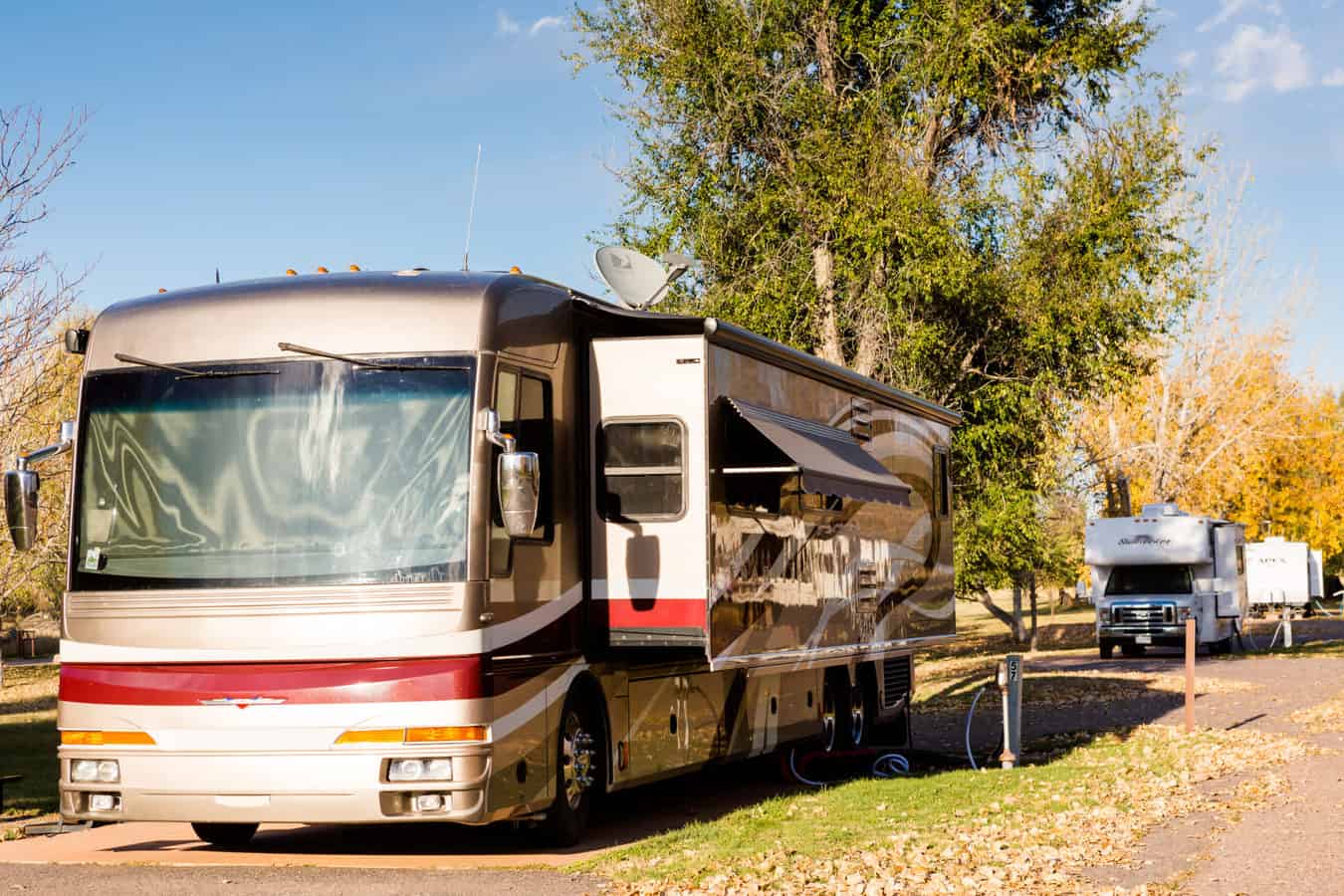
What You Should Know About RV Depreciation
It’s no secret that RVs lose a ton of value the second you drive them off the lot. Even though you may live in your RV full-time, it doesn’t have the same value as a home. Brick-and-mortar buildings often gain value over time, while RV depreciation is a well-known phenomenon.
Although you can buy a brand-new RV, it will never be a good investment. You will rarely, if ever, sell an RV for a higher price than you initially paid. It may not affect you very much if you plan to keep the same RV for the foreseeable future. However, this can be detrimental to anyone who wants to sell their current vehicle and buy a new one.
RV depreciation is a multi-faceted problem. There are many different rates and factors that determine how much you can buy or sell these vehicles for. We’ll break down some of these elements below, so read on if you want to find out how to get the most bang for your buck!
Average RV depreciation rates
Before we dive into the details, let’s quickly cover some average numbers for RV depreciation. Of course, these rates and prices will vary based on a variety of factors. But if you want to get a general idea of how quickly your RV will lose its value, these are the numbers you should know.
For starters, the first year is where you’ll see the biggest drop-off. Brand new RVs lose about 20% of their value within the first year, even if they’re still in pristine condition. Some even lose 30% or more!
After this steep decline, the rate slows down a bit. You’ll generally lose another 10% in the second year, but it gradually decreases as time goes on. By the time you hit year five, you’ll only lose about 5% value on an annual basis. It’s not ideal, but you’ll eventually get to a slow rate of decline if you’ve owned your vehicle for a few years.
RV depreciation isn’t fun for those who are trying to sell, but it’s great for secondhand dealerships and buyers! If you want to buy an RV that’s still in decent condition, you can find a great price thanks to these depreciation rates.
Depreciation factors
The numbers above provide a general outline of what to expect from RV depreciation. However, there are several factors that can increase or decrease the rate of decline. Read through these elements to see if there are any areas where you can improve your vehicle.
Mileage
Every vehicle undergoes wear and tear when you drive them around. Tires wear out, pieces come loose, and you may start hearing creaks and groans. Mileage factors into the depreciation rate because some buyers don’t want to purchase a model that has traveled a lot.
If you have a brand-new RV that’s only been on a few trips, it should be fairly easy to find a willing buyer. On the other hand, a well-traveled RV is automatically worth less because the buyer feels like they won’t be able to get a lot of use out of it.
Just remember that mileage matters a lot at the beginning, but it becomes less important as time goes on. Eventually, people will care more about the year the RV was made rather than how many miles it has traveled. Driving usually won’t ruin the value, so you don’t need to worry about mileage as much if you’re selling an older model.
Damages
Damages can severely affect your RV resale value. If you have been in an accident, buyers will be more wary of your vehicle. Even if it looks fine, there may be hidden issues that will reveal themselves later.
It’s important to be transparent about any damages or crashes that the RV has experienced. Even if you try to keep it secret, buyers can sometimes look up reports anyway. Instead, make sure you fix the damage as well as possible and provide information about the repairs and improvements.
Expired warranties
Most new RVs come with warranties and protection plans. These are expensive vehicles, and you want to ensure that they’re protected! In addition, RVs have several interior appliances and systems that may come with their own warranties. Most of these last for a few years, but they will eventually expire.
Once your warranties have expired, your rate of depreciation may increase. People will be more wary if you try to sell them an unprotected vehicle. So if you plan to resell the vehicle, do everything you can to ensure your vehicle stays under warranty protection. Buyers will pay extra for peace of mind!
Market fluctuations
Another element of RV depreciation is the market. One of the reasons why RVs lose their value so quickly is because new models are constantly being released. Even if your camper shares many of the same features, they don’t have the same “wow” factor as the new vehicles. It’s impossible to compete with the latest and greatest, so you often have to reduce your price in order to attract buyers.
In addition, there are certain times of the year when it’s better or worse to sell your RV. For instance, you will have more luck in the spring and summer months because this is when people want to travel. Not a lot of people are interested in buying an RV once winter rolls around, so you may have to lower your prices to make it more appealing.
Brand
Certain brand names retain their value better than others. There are several different RV manufacturers in the industry. The better their reputation is, the better the resale price will be!
For instance, Airstream is a hugely popular brand. These trailers can change hands multiple times without losing a lot of value. The company has even estimated that the majority of its products are still being used today.
If you buy an RV that’s rare, vintage, or has a unique design, you may be able to resell it for a value that’s close to the original price. This situation is fairly rare, but it can happen!
RV type
Finally, the type of RV you have plays a role in the depreciation process.
For starters, let’s compare motorhomes vs. towable trailers. Motorhomes almost always have higher depreciation rates because they tend to break down faster. The vehicle and living space are connected, so an issue with one will affect the other. Class A motorhomes tend to depreciate the fastest, followed by Class C and Class B models.
In contrast, trailers do not have engines that can fail. It’s much easier to maintain a towable trailer and resell it for a decent price. They also tend to last longer. However, large and bulky models are more prone to failure, so they may depreciate faster than their smaller counterparts.
Therefore, fifth wheels depreciate fastest, followed by toy haulers, travel trailers, and smaller pop-up/teardrop campers. However, it all depends on the size, weight, design, and brand, so you may still have options to retain value.
How to reduce depreciation rates
Depreciation can be discouraging, especially if you want to resell a brand-new model. Fortunately, there are a few things you can do to slow the rate of RV depreciation.
- Safely store your RV when it’s not in use
- Update the interior and appliances to match industry standards
- Rent out your RV to mitigate losses
- Document all your damages, repairs, and updates
None of these practices will entirely stop the depreciation process, but they can help you retain some value so you can get a decent price at the end of the day.
Related articles:





Class A motorhomes are complex and expensive machines. I would definitely not be renting my motorhome.
Personally, I will not buy a camper. Because none of the interiors please me. So got a used long wheelbase, high top, used van, with decent miles, and a very decent price. In the end it will be converted to a camper, with the inside mostly made by me, and what I want, instead of what someone else “thinks” I want. It won’t depreciate, because I do not plan on selling it. It will be used all year round, ond long trips, weekend trips, maybe some day trips, and as a backup vehicle. If needed, a new replacement engine is not as much as they claim on TV, and any vehicle will wear out tires, and need regular maintenance. And it will be a camper van, so if I have to use the toilet, I can stop, leave my seat, and go in the back, even if it is in the middle of a rainstorm – can’t do that in a camper trailer. I may, or may not, pull a small trailer, which will be used as a small workshop, and to carry extra supplies. The furnishings will be simple, and most importantly reliable.
I have always been a believer in buying very good quality used toward the bottom of the depreciation curve. I have done this with 2 Dutch Star diesel pushers. Spartan/Cummins and had very good luck. A 1997 for for yrs bought in 2012, and a yr2000 of same that I currently have had for 5 yrs with NO significant problems. Nothing that I couldn’t handle myself and I am not a mechanic. Just an average DIY’er. In my late seventies. Do most of my routine maintenance. Had to replace a Jack ( hired that out), and that’s about the worst thing that’s happened. Drove both tens of thousands of miles. Bought both in excellent shape and fairly low miles. This strategy works IF you buy quality products in good shape. I could sell this coach right now for what I paid 5 yrs and 25k miles ago. We are about half time onboard. Was full time for 3 yrs. On each coach.